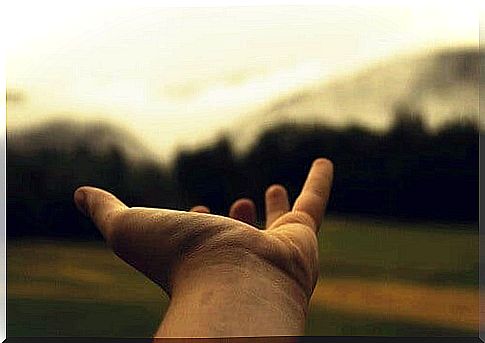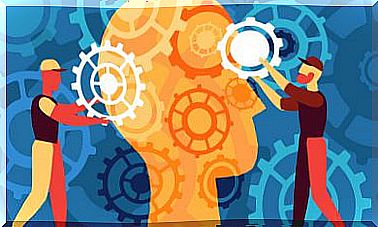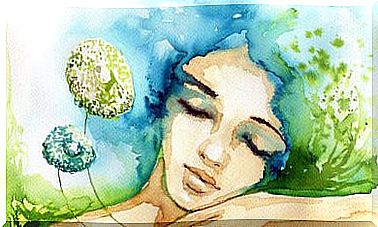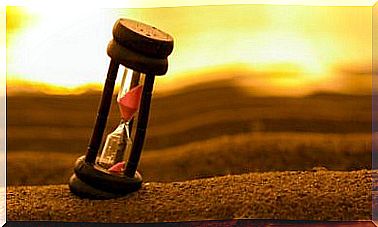I Have Learned That I Am Responsible For My Happiness

I alone am responsible for my happiness; just me and no one else. I no longer demand from others to create a world for me, I no longer ask for validation at every moment, nutrients for my grief or saviors for my sorrows.
I have learned that it is better to rescue yourself in order to gain boldness and strength. Nor do I blame others for my sadness, now I put aside grudges and assume enough courage to heal disappointments and continue to advance in learning.
It is not easy at all to reach this level of acceptance and commitment with ourselves. It is not for a very simple fact. People find it hard to assume that no one in this world has an obligation to make us happy. Perhaps our parents contributed to generating that illusion in their day, but when one becomes an adult, the task of reaching that level of well-being and fulfillment falls on one’s shoulders. In no one else.
And yet, we continue to seek happiness in the arms of others and not in our own. In spite of everything, we long for others to strive to reward us, to untie our knots, to smooth our paths so that nothing hurts, so that everything has the taste of joy. We delegate the most important task of our lives to others, which is none other than learning to be happy.
Tal Ben-Shahar, a Harvard professor and an expert on happiness and leadership, points out something important to us. This state of high satisfaction is a continuous process of self-knowledge. It is an act of responsibility where everyone must learn to create the reality they want to live ; our day to day is full of options and only we can and must choose our path.

I am responsible for my happiness
Carl Gustav Jung introduced into his theories an interesting concept that is worth remembering. We refer to the daimon , an entity that the Romans recognized as a genius and the Egyptians as Ba , the most spiritual part of the human being. Thus, according to the famous Swiss psychiatrist, in our unconscious there is a daimon waiting to emerge to shape our true self.
This internal archetype is what encourages our creative impulse, the one that gives us courage, intuition and vitality. Now, the problem is that most of the time people keep that inner genius silenced. We ignore him because sometimes the messages can be confusing or talk about radical changes. He asks who is a lawyer to have an artistic life.
Whoever goes every day to that job that offers him sustenance, cries out for him to escape from the routine. He asks those who feel safe in their comfort zone to get around that barrier and challenge themselves. All of this happens because the daimon wants us to be free, independent and responsible for our own lives, not subordinate or aligned. Because happiness, after all, requires a great deal of daring.

Your happiness, your responsibility
Most of the studies done on the origin of happiness are very limited. An example is the one carried out at the University of Missouri by Dr. Sonya Lyubomirsky. In this work we are explained that happiness basically depends on three factors: a genetic component, environmental factors and the personal practices that each one of us carry out.
Now, it should be noted that in this search to understand how happiness is achieved, there are more significant elements. Because sometimes, there are those who, even dealing with the most adverse conditions, perceive themselves as happy. There are those who, even when dealing with a disease or a complicated context, describe their life as meaningful.
How is this possible? When asked about it, they do not hesitate to give a simple answer: I have learned that only I am responsible for my happiness, I am aware that everything depends on one thing: my attitude.
I am responsible for my happiness, I take care of the garden of my mind every day
Can you be happy despite external circumstances? Can you keep your spirits despite loss, heartbreak, unemployment, or illness? John Milton, the famous seventeenth-century English poet and essayist, once said that heaven and hell can inhabit the mind at the same time. Nothing can be more true than this ancient statement by the author of Paradise Lost .
Cognitive psychology tells us that our well-being depends only on ourselves and what lives in our mind. With each interpretation we make, in each thought, categorization, belief and emotion we are shaping the reality that surrounds us. In this way, our well-being and happiness will not depend only on what happens to us, but how we interpret what happens to us.

Now, taking control of that internal garden that inhabits our mind is not an easy task. It is something to work on every day taking into account some aspects. Let us remember, for example, that our well-being is not, as a rule, someone else’s responsibility. Blaming others for our unhappiness only subordinates us to immobility.
Let’s keep it in mind, let’s take an active, proactive and responsible role in building our happiness. We take the reins. We create our reality based on the quality of our thoughts and emotions.









